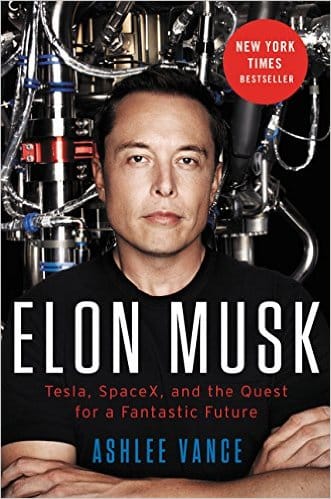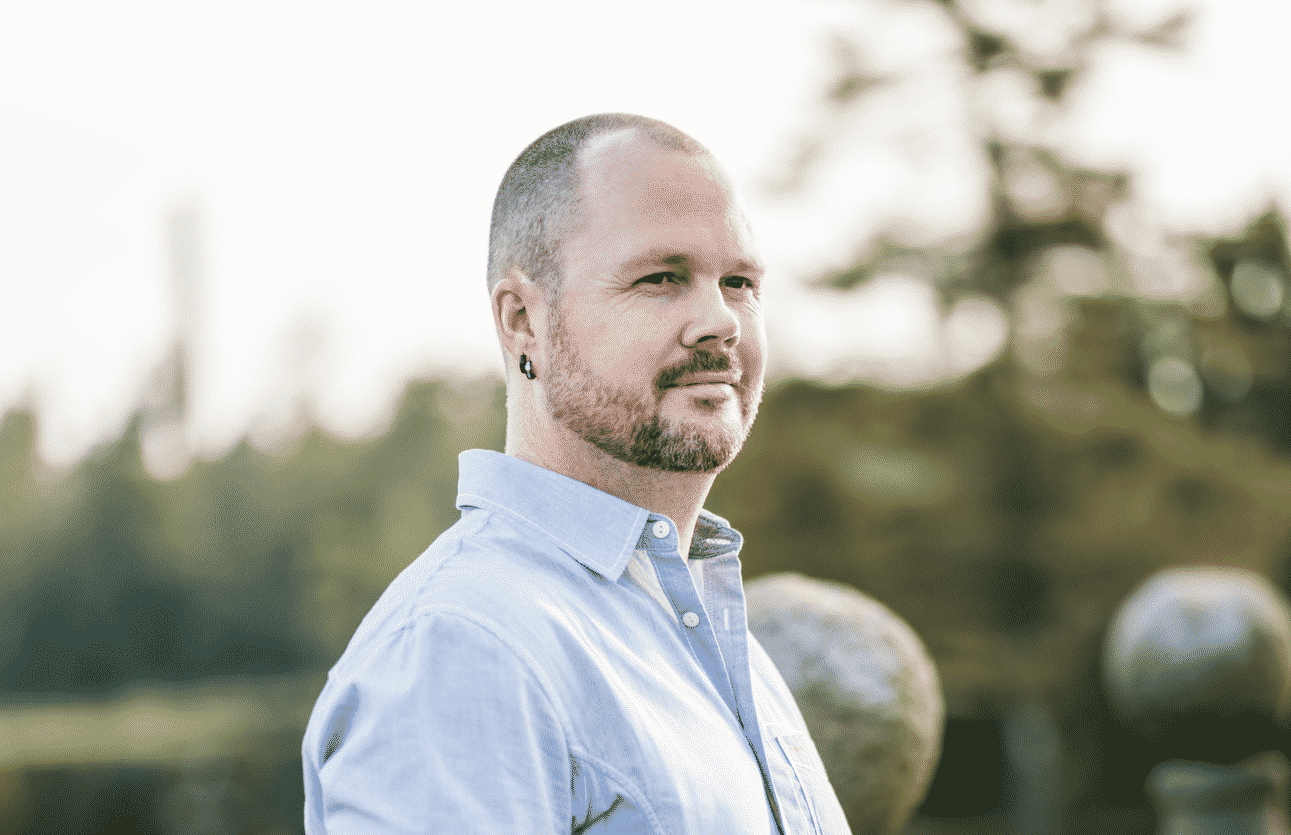Eric Brown • • 14 min read
50 Rare Elon Musk Quotes to Revolutionize Your Perspective

Below you will find what we consider to be the best 50 Elon Musk quotes of all time. These quotes were hand picked by us. We dug through hundreds of hours of video, audio, and interviews from Elon Musk to find a collection that is as rare as it is dazzling.
I’m not trying to be anyone’s savior. I’m just trying to think about the future and not be sad.
— Elon Musk
Who really knows what goes on in the mind of Elon Musk, apart from the man himself?
How does he look back upon his achievements? How wild did his dreams become after experiencing his power to shape the world? Does he ever feel afraid?
Elon is a South African-born entrepreneur, who, through his undeniable success, has become something of a real-life sci-fi visionary hero. Having played monumental roles in Space X, Tesla, PayPal, SolarCity, Neuralink, and The Boring Company — his resume continues to expand year after year.
What made him who he is now? We gathered the greatest Elon Musk quotes to give you a peek into the profoundly revolutionary psyche of this legend. Enjoy!
Elon Musk Quotes on Learning & Logic
1. The importance of asking the right questions.
“[The Hitchhikers Guide to the Galaxy] taught me that the tough thing is figuring out what questions to ask, but that once you do that, the rest is really easy. I came to the conclusion that we should aspire to increase the scope and scale of human consciousness in order to better understand what questions to ask. Really, the only thing that makes sense is to strive for greater collective enlightenment.”
2. Being where the action is.
“Whenever I’d read about cool technology, it’d tend to be in the United States or, more broadly, North America. […] I kind of wanted to be where the cutting edge of technology was, and of course within the United States, Silicon Valley is where the heart of things is. Although, at the time, I didn’t know where Silicon Valley was. It sounded like some mythical place.”
3. Obsessing over ideas.
“She said the first question I asked her was, ‘Do you ever think about electric cars?’ She said no, she never does. It wasn’t great. Recently [the line] has been more effective.”
4. Deciding what work to do.
“When I was in college, I just thought, ‘Well, what are the things that are most likely to affect the future of humanity at a macro level?’ And it just seemed like there would be the Internet, sustainable energy, making life multi-planetary, and then genetics and AI.”
5. Being a part of the web revolution.
“It wasn’t like, ‘Oh, I want to make a bunch of money.’ […] With the internet, anyone who had a connection anywhere in the world would have access to all the world’s information, just like a nervous system. Humanity was effectively becoming a super organism and qualitatively different than what it had been before, and so I wanted to be part of that.”
6. Motivating students and accelerated learning.
“The best teacher I ever had was my elementary school principal. Our math teacher quit for some reason, and he decided to sub in himself for math and accelerate the syllabus by a year. We had to work like the house was on fire for the first half of the lesson and do extra homework, but then we got to hear stories of when he was a soldier in WWII. If you didn’t do the work, you didn’t get to hear the stories. Everybody did the work.”
7. Critical thinking and filter bubbles.
“Do you have the right axioms, are they relevant, and are you making the right conclusions based on those axioms? That’s the essence of critical thinking, and yet it is amazing how often people fail to do that. I think wishful thinking is innate in the human brain. You want things to be the way you wish them to be, and so you tend to filter information that you shouldn’t filter.”
8. First principles thinking and reasoning by analogy.
“I do think a good framework for thinking is physics, you know, the first principles reasoning. What I mean by that is boil things down to their fundamental truths and reason up from there as opposed to reasoning by analogy. Through most of our life, we get through life by reasoning by analogy, which essentially means kind of copying what other people do with slight variations. And you have to do that, otherwise mentally you wouldn’t be able to get through the day. But when you want to do something new, you have to apply the physics approach. Physics has really figured out how to discover new things that are counterintuitive, like quantum mechanics; it’s really counterintuitive.”
9. Answer the ‘why’ of education.
“A lot of kids are in school puzzled as to why they’re there. I think if you can explain the ‘why’ of things, then that makes a huge difference to people’s motivation. Then they understand purpose.”
10. Learning more than you think you can.
“I do kinda feel like my head is full! My context-switching penalty is high, and my process isolation is not what it used to be. Frankly, though, I think most people can learn a lot more than they think they can. They sell themselves short without trying. One bit of advice: it is important to view knowledge as sort of a semantic tree–make sure you understand the fundamental principles, i.e., the trunk and big branches, before you get into the leaves/details or there is nothing for them to hang on to.”
11. On being dedicated to learning something new.
“I never had a job where I made anything physical. I cofounded two Internet software companies, Zip2 and PayPal. So it took me a few years to kind of learn rocket science, if you will.
I had to learn how you make hardware. I’d never seen a CNC machine or laid out carbon fibre. I didn’t know any of these things. But if you read books and talk to experts, you’ll pick it up pretty quickly. […] It’s really pretty straightforward. Just read books and talk to people–particularly books. The data rate of reading is much greater than when somebody’s talking. “You can learn whatever you need to do to start a successful business either in school or out of school. A school, in theory, should help accelerate that process, and I think oftentimes it does. It can be an efficient learning process, perhaps more efficient than empirically learning lessons. There are examples of successful entrepreneurs who never graduated high school, and there are those that have PhD’s. I think the important principle is to be dedicated to learning what you need to know, whether that is in school or empirically.”
12. Structured format of grade school.
“It shouldn’t be that you’ve got these grades where people move in lockstep and everyone goes through English, math, science, and so forth from fifth grade to sixth grade to seventh grade like it’s an assembly line. People are not objects on an assembly line. That’s a ridiculous notion. People learn and are interested in different things at different paces. You really want to disconnect the whole grade-level thing from the subjects. Allow people to progress at the fastest pace that they can or are interested in, in each subject. It seems like a really obvious thing.”
13. The value of the truth.
“I care a lot about the truth of things and trying to understand the truth of things. I think that’s important. If you’re going to come up with some solution, then the truth is really, really important.”

Elon Musk Quotes on Business
14. Aim for utility.
“It’s better to approach this [building a company] from the standpoint of saying–rather than you want to be an entrepreneur or you want to make money–what are some useful things that you do that you wish existed in the world?”
15. The value of profit.
“I think the profit motive is a good one if the rules of an industry are properly set up. There is nothing fundamentally wrong with profit. In fact, profit just means that people are paying you more for whatever you’re doing that you’re spending to create it. That’s a good thing.”
16. Creating a compelling company.
“Fundamentally, if you don’t have a compelling product at a compelling price, you don’t have a great company.”
17. 40-hour workweek.
“You’re not going to create revolutionary cars or rockets on 40 hours a week. It just won’t work. Colonizing Mars isn’t going to happen on 40 hours a week.”
18. Approving and executing on ideas.
“The path to the CEO’s office should not be through the CFO’s office, and it should not be through the marketing department. It needs to be through engineering and design.”
19. Creating companies.
“I don’t create companies for the sake of creating companies, but to get things done.”
20. Having good people.
“A small group of very technically strong people will always beat a large group of moderately strong people.”
21. Personality matters.
“The biggest mistake in general that I’ve made–and I’m trying to correct for that–is to put too much of a weighting on somebody’s talent and not enough on their personality […]. It actually matters whether somebody has a good heart. It really does. And I’ve made the mistake of thinking that sometimes it’s just about the brain.”
22. The ‘Special Forces’ management approach.
“I want to accentuate the philosophy that I have with companies in the startup phase, which is a sort of ‘special forces’ approach. The minimum passing grade is excellent. That’s the way I believe startup companies need to be if they’re ultimately going to be large and successful companies. We’d adhered to that to some degree, but we’d strayed from that path in a few places. That doesn’t mean the people that we let go on that basis would be considered bad–it’s just the difference between Special Forces and regular Army. If you’re going to get through a really tough environment and ultimately grow the company to something significant, you have to have a very high level of dedication and talent throughout the organization.“
23. CEO involvement in companies.
“I’m head engineer and chief designer as well as CEO [at SpaceX], so I don’t have to cave to some money guy. I encounter CEOs who don’t know the details of their technology and that’s ridiculous to me.“
24. Focusing on the competition.
“We don’t think too much about what competitors are doing because I think it’s important to be focused on making the best possible products. It’s maybe analogous to what they say about if you’re in a race: don’t worry about what the other runners are doing–just run.”
25. Tolerance of innovation and failure.
“There’s no map. By its nature, it’s unknown, which means you’re going to make false moves. It must be OK to make false moves.”
26. Soliciting feedback.
“Always solicit critical feedback, particularly from friends. Because, generally, they will be thinking it, but they won’t tell you.”
27. Brands as perception.
“Brand is just a perception, and perception will match reality over time. Sometimes it will be ahead, other times it will be behind. But brand is simply a collective impression some have about a product.“
28. On how close companies come to failure.
“I certainly have lost many battles. So far, I have not lost a war, but I’ve certainly lost many battles […] more than I can count, probably.
We came very close to both companies not succeeding in 2008. We had three failures of the SpaceX rocket, so we were 0 for 3. We had the crazy financial recession, the Great Recession. The Tesla financing round was falling apart because it’s pretty hard to raise money for a startup car company if GM and Chrysler are going bankrupt. […] Fortunately at the end of 2008, the fourth launch, which was the last launch we had money for, worked for SpaceX, and we loved the Tesla financing round Christmas Eve 2008, the last hour of the last day that it was possible.”
29. Key to success.
“Start somewhere and then really be prepared to question your assumptions, fix what you did wrong, and adapt to reality.”
Read this: What I Learned About the Future By Reading 100 Science Fiction Books

Image via SpaceX
Elon Musk Quotes on Innovation, Technology, Future
30. Innovation should evolve.
“It’s important to create an environment that fosters innovation, but you want to let it evolve in a Darwinian way. You don’t want to, at a high level, at a gut level, pick a technology and decide that that’s the thing that’s going to win because it may not be. You should really let things evolve.”
31. Doing something disruptive.
“I do think it’s worth thinking about whether what you’re doing is going to result in disruptive change or not. If it’s just incremental, it’s unlikely to be something major. It’s got to be something that’s substantially better than what’s gone on before.”
32. On being useful.
“I don’t think everything needs to change the world, you know. […] Just say: ‘Is what I’m doing as useful as it could be?’””Whatever this thing is that you’re trying to create, what would be the utility delta compared to the current state of the art times how many people it would affect? That’s why I think having something that makes a big difference but affects a small to moderate number of people is great, as is something that makes even a small different but affects a vast number of people.“
33. AI in the future.
“I think AI is going to be incredibly sophisticated in 20 years. It seems to be accelerating. The tricky thing about predicting things when there is an exponential is that an exponential looks linear close-up. But actually, it’s not linear. And AI appears to be accelerating, as far as I can see.”
34. On OpenAI.
“It’s not as though I think the risk is that the AI would develop all on its own right off the bat. The concern is that someone may use it in a way that is bad, and even if they weren’t going to use it in a way that is bad, somebody would take it from them and use it in a way that’s bad. That, I think, is quite a big danger. We must have democratization of AI technology and make it widely available. That’s the reason [we] created OpenAI.
There’s a quote that I love from Lord Acton–he was the guy who came up with, ‘Power corrupts and absolute power corrupts absolutely’–which is that ‘freedom consists of the distribution of power and despotism in its concretion.’ I think it’s important if we have this incredibly powerful AI that it not be concentrated in the hands of the few.”
35. Approaching the singularity.
“Creating a neural lace is the thing that really matters for humanity to achieve symbiosis with machines.”
36. We are cyborgs.
“We’re already a cyborg. You have a digital version of yourself or partial version of yourself online in the form of your e-mails and your social media and all the things that you do. And you have, basically, superpowers with your computer and your phone and the applications that are there. You have more power than the president of the United States had 20 years ago. You can answer any question; you can video conference with anyone anywhere; you can send a message to millions of people instantly. You just do incredible things.”
37. On autonomous vehicles.
“The reality is that autonomous systems will drive orders of magnitude better than people. In terms of accidents per mile, it’ll be far lower. Technologically, I think it’s about three years away for full autonomy.” [2015]“Owning a car that is not self-driving, in the long term, will be like owning a horse–you would own it and use it for sentimental reasons but not for daily use.”
38. The value of tunnels.
“The fundamental problem with cities is that we build cities in 3D. You’ve got these tall buildings with lots of people on each floor, but then you’ve got roads, which are 2D. That obviously just doesn’t work. You’re guaranteed to have gridlock. But you can go 3D if you have tunnels. And you can have many tunnels crisscrossing each other with maybe a few meters of vertical distance between them and completely get rid of traffic problems.”
39. Orbital synchronization of Earth and Mars.
“You can only go there every two years because the orbital synchronization of Earth and Mars is about every two years. but I think it would be an interesting way for the civilization to develop. People would meet each other and be like, ‘What orbital synchronization did you arrive on?’”
40. In a simulated reality.
“Hope we’re not just the biological boot loader for digital superintelligence. Unfortunately, that is increasingly probable.”
41. Civilization-level decline of technology.
“What a lot of people don’t appreciate is that technology does not automatically improve. It only improves if a lot of really strong engineering talent is applied to the problem. […] There are many examples in history where civilizations have reached a certain technology level and that have fallen well below that and then recovered only millennia later.”
42. Breakthrough innovations.
“When somebody has a breakthrough innovation, it is rarely one little thing. Very rarely, is it one little thing. It’s usually a whole bunch of things that collectively amount to a huge innovation.”

Miscellaneous Musk Quotes
43. Embrace change.
“Some people don’t like change, but you need to embrace change if the alternative is disaster.”
44. Self-investment.
“I always invest my own money in the companies that I create. I don’t believe in the whole thing of just using other people’s money. I don’t think that’s right. I’m not going to ask other people to invest in something if I’m not prepared to do so myself.”
45. Work harder.
“Work like hell. I mean you just have to put in 80 to 100 hour weeks every week. [This] improves the odds of success. If other people are putting in 40 hour workweeks and you’re putting in 100 hour workweeks, then even if you’re doing the same thing, you know that you will achieve in four months what it takes them a year to achieve.
If there was a way that I could not eat, so I could work more, I would not eat. I wish there was a way to get nutrients without sitting down for a meal.”
46. Everyone has fear.
“I wouldn’t say I have a lack of fear. In fact, I’d like my fear emotion to be less because it’s very distracting and fries my nervous system.”
47. Doing things anyways.
“I always have optimism, but I’m realistic. It was not with the expectation of great success that I started Tesla or SpaceX. […] It’s just that I thought they were important enough to do anyway.”
48. Environmental catastrophe.
“We’re running the most dangerous experiment in history right now, which is to see how much carbon dioxide the atmosphere […] can handle before there is an environmental catastrophe.”
49. Inhabiting Mars.
“You need to live in a dome initially, but over time you could terraform Mars to look like Earth and eventually walk around outside without anything on. […] So it’s a fixer-upper of a planet.”
50. Development of human consciousness.
“From an evolutionary standpoint, human consciousness has not been around very long. A little light just went on after four and a half billion years. How often does that happen? Maybe it is quite rare.”
I hope you enjoyed this collection of Elon Musk Quotes. If you did, check out his biography below.
—

Elon Musk by Ashlee Vance
If you enjoyed the aforementioned quotes, Elon Musk by Ashlee Vance is an incredible story to fill your thirst for more inspiration. Chalk full of explanations, quotes, and discussions from the man himself, this book will keep you reading until the last page.

Eric Brown
I'm a creator, artist, writer, and experience designer. I help people become themselves.








